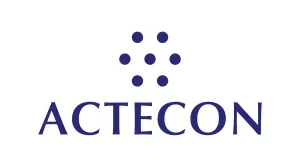In Turkey, the Leniency Regulation is in force since the beginning of 2009 and yet the number of leniency applications had always been very low, especially when compared to Europe and the Far East countries. There are many different speculations as to the reasons of this low number of leniency applications. Some even argued that leniency is alien to Turkish culture and that we should never expect a significant increase in the number of such applications as these applications may only be made by multinationals operating in Turkey and not by the Turkish companies themselves. The recent decision of the Turkish Competition Authority ("TCA"), regarding an anti-competitive collusion between the self-employed engineers in the Burdur province of Turkey may prove these claims to be wrong1.
In 2016, the TCA has initiated a preliminary inquiry for examining whether the mechanical engineers and engineering companies in Burdur has created a common funding pool among them to share their income thereby violating Article 4 of the Law No. 4054 on the Protection of Competition ("Competition Law"). During the course of the on-spot inspections conducted by the TCA's case handlers in the preliminary inquiry stage, one of the engineering companies, Kocapınar Engineering ("Kocapınar"), applied for leniency after being informed by the case handlers about their rights to make such an application.
As a result of its investigation, the TCA has decided that the self-employed engineers in Burdur violated the Competition Law and imposed monetary fines on all the parties of the anti-competitive agreement aside from the leniency applicant. The TCA granted full immunity to Kocapınar stipulating that it met the conditions specified the Leniency Regulation. It is important to note that the conditions for benefiting from a full immunity via an application made after the initiation of the preliminary inquiry is considerably strict as a full immunity is granted only if the TCA does not have, at the time of the submission, sufficient evidence to prove the violation.
The fact that the TCA granted a full immunity to Kocapınar shows that the TCA currently interprets the conditions required for granting a full immunity as laxly as possible. This decision may send a strong signal to the undertakings that the TCA welcomes leniency application and that it will protect the interests of the leniency applicants as much as possible to encourage further applications. The TCA also proved its commitment to encouraging leniency applications in its recent corporate loans decision where it granted a full immunity to the leniency applicant although it held that the violation in question was not a cartel but an information exchange by referring to the provision of the Competition Law rather than the Leniency Regulation2. This was also a landmark decision that significantly removed the legal uncertainties faced by the undertakings due to the difficulty of determining whether certain anti-competitive horizontal collusions constitute cartels or not.
Although a dramatic increase in the number of leniency applications is not yet observed, the fact that even a self-employed engineer in Burdur may choose to benefit from a leniency application if given the opportunity shows that the current situation probably does not have anything to do with culture and that there is significant room for improvement. We believe that the current approach of the TCA has the potential to make leniency a part of the Turkish competition law culture and as a result this may grant the TCA with one of the best tools in dealing with cartels, which are known to be the most harmful violations that are very difficult to detect.
Foontotes
1 TCA's decision dated 14.12.2017 and numbered 17-41/640-279
2 TCA's decision dated 28.11.2017 and numbered 17-39/636-276
The content of this article is intended to provide a general guide to the subject matter. Specialist advice should be sought about your specific circumstances.



